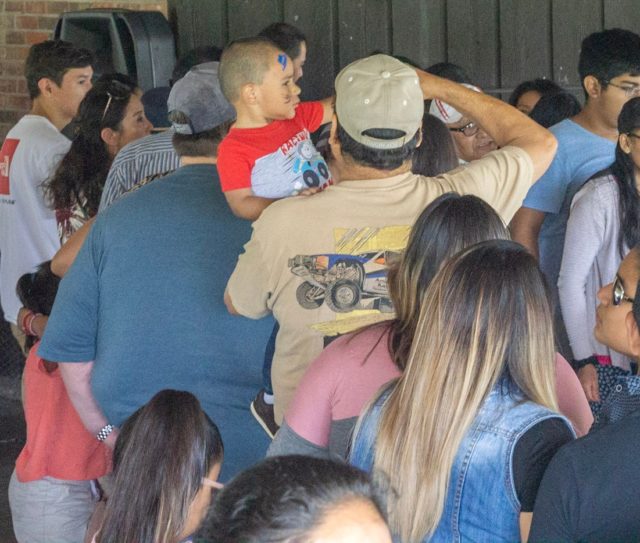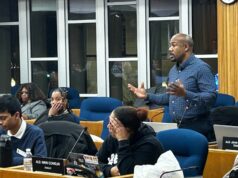COVID-19 has hit the United States – and Madison – hard this past week and much of the country is now under some level of economic shutdown. In so many ways, it is hitting Dane County’s undocumented Latinx community the hardest and adding a new layer of fear and trepidation as a community that makes up a major part of the restaurant and service industry is suddenly without employment and the means to support their families.
“This past week has been really tough. It has been crushing seeing some of our young people and how this is stressing them when parents are laid off. It’s hard,” Karen Menéndez Coller, executive director of Centro Hispano, tells Madison365. “Seeing how many people have lost their jobs already is distressing. That’s the main thing we’ve been seeing at Centro. Eight hundred people just go laid off through Food Fight alone.”
Centro Hispano of Dane County, who serves more than 2,500 families and more than 6,000 individuals each year through its programs and services out of its headquarters on Madison’s south side, has mostly gone virtual and many Centro employees are now working remotely. It’s an unusual sight to see for the agency that is normally bustling with activity from front to back.
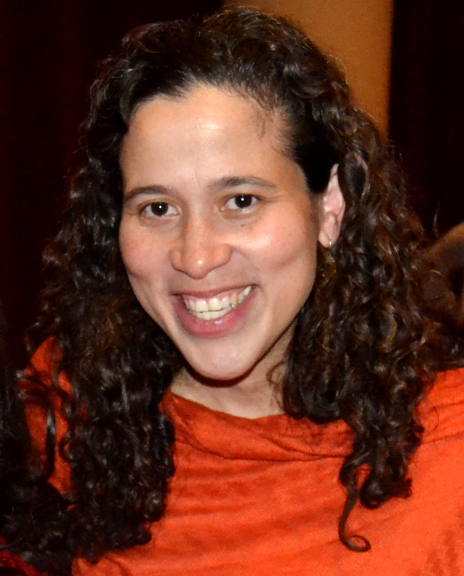
“This pandemic has created an incredible vulnerability for people in the shadows who are undocumented,” Menéndez Coller says. “I know it’s a very big concern for me right now and it’s a big concern for everybody who has been working for this community for many years.”
Baltazar De Anda Santana, the executive director of the Latino Academy of Workforce Development, agrees.
“This is a scary time for many who are undocumented right now. If you have not touched the water, you don’t know how cold it is. I was telling my husband this morning, if I didn’t have documents, I don’t know how I could go through this right now,” De Anda Santana tells Madison365. “It is very, very difficult. You feel alone. You feel like you don’t have much to do.”
De Anda Santana has been there. He had been living in the United States undocumented for 16 years before recently becoming an American citizen.
“I never forget where I came from and I realize that I’m in a fortunate place right now. We as a community have to remember that right now, that if we have a job, we are very fortunate,” he says. “We as a community need to be creative to figure out how we’re going to be helping these folks who have lost their jobs – undocumented folks living in poverty.”
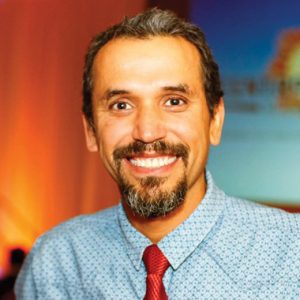
The Latino Academy of Workforce Development’s mission is to educate and train underserved Latinos in Dane County ensuring family-sustaining wages and career pathways for generations to come. Unfortunately, too, the Latino Academy closed its doors last week because of the Coronavirus pandemic, but the organization is still keeping busy helping its students as much as possible in any way they can.
“Right now, many of our students who work specifically in the hotel and restaurant industry have been let go,” De Anda Santana says. “Hopefully it won’t be a long time. But even for a short time, it’s pretty terrible. These folks depend on these wages. This is their livelihood.
“What they’ve been telling them is that they can come back when things have passed. ‘We’ll let you know what’s happening.’ But so many of our folks are being let go. Even though it’s temporary, it’s devastating,” he adds. “Many of our students have two/three different jobs and are just making ends meet.”
De Anda Santana has let his students know that Latino Academy’s food pantry is available to them at this time of need.
“What my students tell me is that, ‘I don’t need food. There’s a lot of food out there. I need a job! I need money so I can pay my rent, my electric bill, for my kids, etc,'” he says.
This feeling of helplessness is a new feeling for De Anda Santana who solves problems and leverages community resources to find people work at the Latino Academy every day of the week, every week of the year.
“We need to do something and we need to do it now. Our students need urgent help,” De Anda Santana says. “We are going to be figuring out what we can do to support our community at this time.”
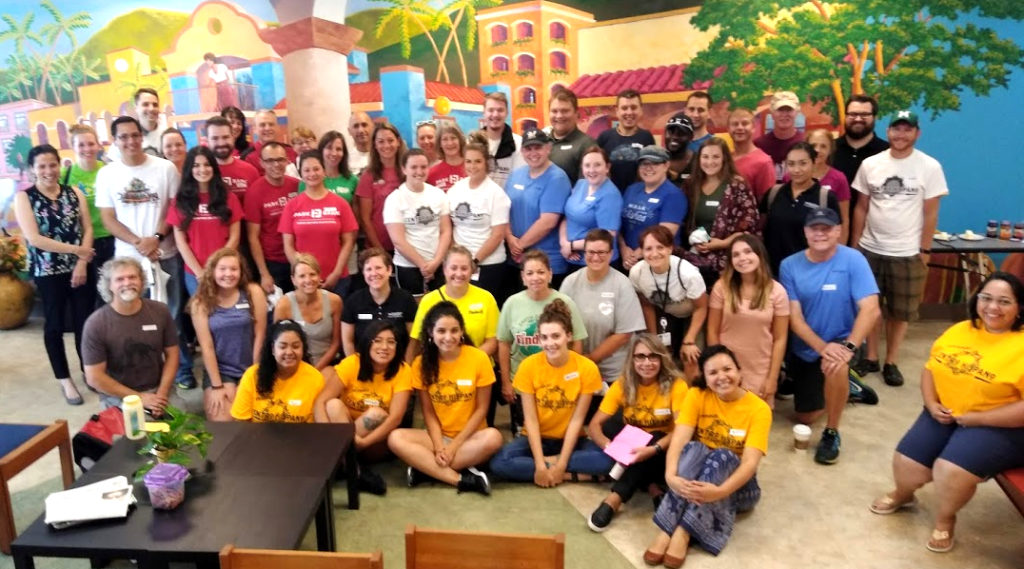
At Centro Hispano, the staff spent the last week revamping how they do things in the Coronavirus pandemic era. With, normally, hundreds and hundreds of people coming to the agency each week, that was no easy task.
“I’m pretty lucky that I have a really driven and creative staff and we really foster this idea of hope. So when this happened, we figured out a way to be creative and do things differently,” Menéndez Coller says. “We’re not going to have a place where our young people can come together, so let’s figure out how we can do that virtually or using social media.
“How can we create virtual classrooms? We recently received some dollars to try some creative things and to do teaching a different way,” she continues. “Our case managers are all going to be available — same as usual — except that they are going to be working virtually or over the phone. It’s really important that they keep doing the work that they do, especially in a time of crisis.”
Menéndez Coller says that the message at Centro has always been around hope and that will never change.
“I think when all of that stuff happened in our community with the ICE raids, that was a big reality check,” she says, speaking of when U.S. Immigration and Customs Enforcement raids happened in the fall of 2018 where 83 people in Wisconsin were arrested, 20 of whom were in Dane County. “We went through a phase where we were so deep in feeling so down about it and out of control about it that we decided that we wanted to flip the narrative about it and say, ‘Nope. We are resilient and we are going to come up with strategies to figure out these problems.’ I think it’s important for the community to see positivity right now.”
There’s going to be a federal stimulus package with relief for American workers to help get them through these tough times. That is a positive. The federal government will provide things like unemployment benefits, Medicaid, food assistance, etc. – but that will not help undocumented immigrants who are not eligible for most social programs and public benefits.
“That federal aid will be good. I think that will support many people. That’s not going to support our undocumented community and that is the community that I’m very concerned about,” De Anda Santana says.
Last Thursday, Gov. Tony Evers issued an order waiving work search requirements and modifying the availability requirements for unemployment insurance benefits for workers impacted by COVID-19.
“Our folks can’t even apply for unemployment,” De Anda Santana says. “That will not help us either. We are going to need to find other solutions.”
“Social distancing” has been the major strategy so far for Americans trying to get a handle on the Coronavirus pandemic. While that might be a minor inconvenience for many Americans, if you don’t have paid sick leave and a nest egg saved up to pay for food, electricity, and rent, social distancing can be terrifying. For undocumented Latino immigrants living on the margins of society, social distancing can push them even farther to the fringes.
“For many people, social distancing might feel like, ‘Oh, I’m not going to go the cinema. I’m not going to go to the store,'” De Anda Santana says. “But for these folks in our community, ‘social distancing’ means ‘Am I going to eat today? Yes or no.’
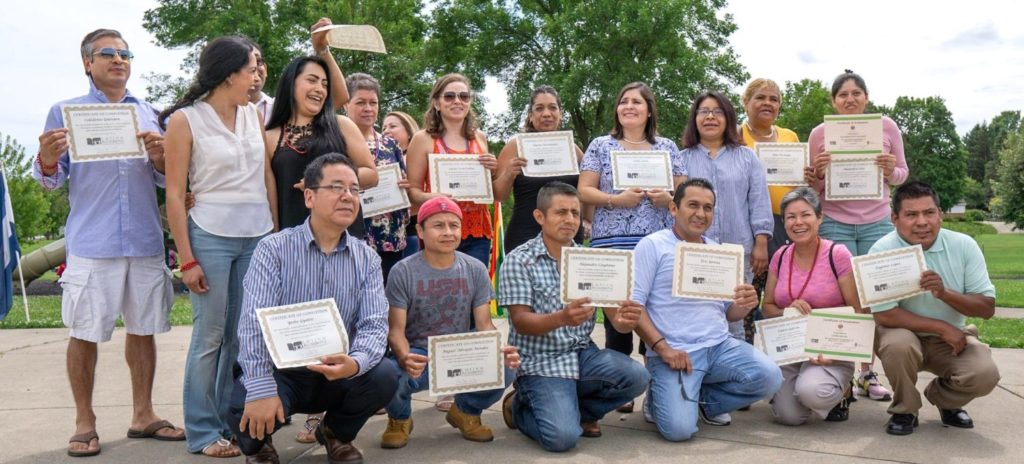
“For our community, social distancing means ‘How am I going to get my next check? How am I going to pay for basic necessities?” De Anda Santana continues. “We are very concerned and very sad about what’s happening. Students are really distressed and they are letting us know. I normally have an answer for things … I don’t have an answer right now.”
The Latino Consortium for Action (LCA), a coalition of the leaders representing different Latinx organizations, professional association and educational groups in Dane County, has been holding emergency meetings and discussions to brainstorm ideas and solutions and to figure out how they can best support those hurt the most by the Coronavirus pandemic. Menéndez Coller and De Anda Santana are both part of the LCA.
“We had a very good meeting yesterday. I’m excited about the conversation we had because I think it was very hopeful,” Menéndez Coller says. “We’re figuring out just how we can support this undocumented community that we know very well so that they feel supported and are carried through this like everybody else.”
De Anda Santana hopes to see more urgency. Not just within the Latino community but throughout Madison.
“This is not time to follow protocol. This is now time to support our community. This is urgent,” De Anda Santana says. “Sometimes things get really slow because we need to talk about this and that. No way, Jose. This is no time to follow protocol. Let us just do the work.
“Our community is very, very creative and Madison is a beautiful place. I trust that we will come together in this crisis and we are going to be all together soon,” he continues. “Faith and hope are pretty much all you have in a situation when you don’t have documents. Our community works very, very hard. I have hope that we will go through this and get stronger.”
Menéndez Coller says that the current Coronavirus pandemic has highlighted a lot of the barriers that the Latino population has been facing for a long time, but she feels like the greater community and the media, unfortunately, focuses way too much on the despair and hopelessness rather than the resiliency and fortitude of Madison’s Latino community.
“Our community has gone through a lot. Most of us carry a lot of trauma. We face a lot of challenges, but we are resilient,” Menéndez Coller says. “Coronavirus has added another piece to this whole thing and now our community, that has been affected by so many things in this state and in this country, is facing one more thing.
“But we need to step it up right now because our community needs to know that we are here for them. We’ve got to figure out solutions,” she adds. “We need to carry through a sense of normalcy and a sense of optimism and try to figure out what we can do to sustain each other. That’s very important. And we will do that.”

























